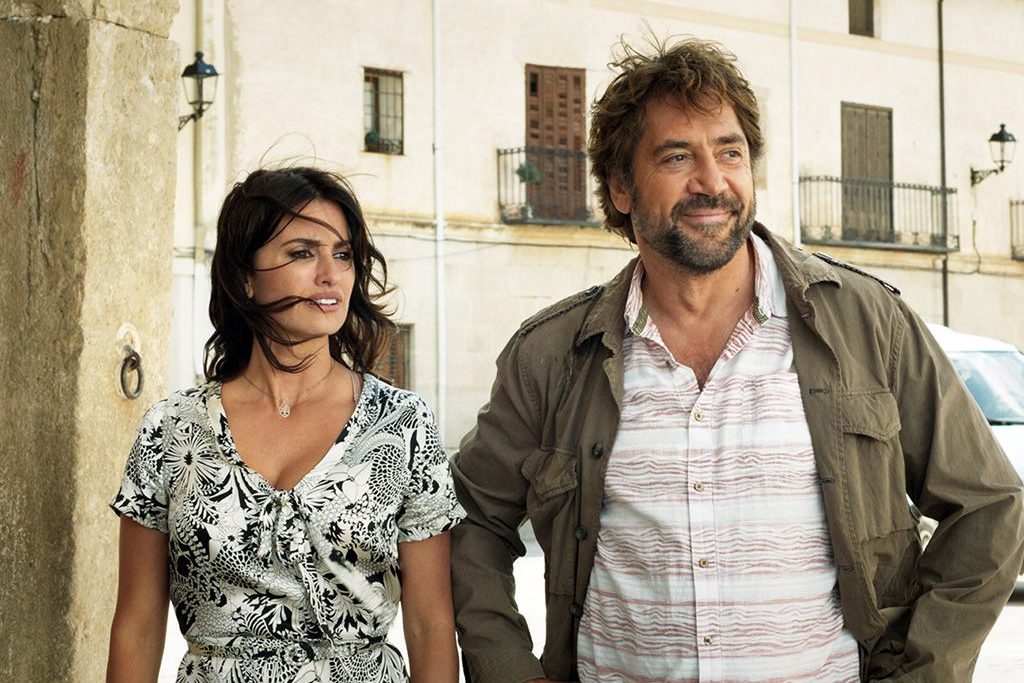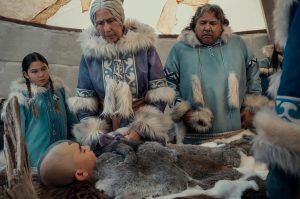‘Spain is an overflow of somberness,’ Wyndham Lewis wrote in The Wild Body (1927). ‘A strong and threatening tide of history meets you at the frontier.’ That was before the civil war of the Thirties and the Franco dictatorship. These days, if you cross the frontiers of Spain, or of any state in the southern tier of the European Union, you meet an immigrant wave from Africa, and a somber outflow of unemployed young emigrants.
Americans, choosing the happy ending, prefer the overflowing cups of the ‘immigrant experience’ to the severances and silences of the emigrant experience. But an immigrant never quite escapes being an emigrant. The old language is still in your head. And should you return, the old familial faces are still in the old familiar places, only a little older and with newer, less familiar faces around them, for the extended family, which is what most immigrants to the US leave behind, continues its extension regardless of individual secessions.
American families are nuclear or atomized, but they are usually extended only as a side-effect of being chronically broken. Unless you are religious or the child of immigrants, you are unlikely to experience the extended family in its historical function of a household economy. To the ancient Greeks, oikos meant family, but also property and the family house; the modern word ‘economics’ is among its descendants. To immigrants, the American family, a little platoon sufficient unto its economic self seems cold and lonely without supporting troops of uncles, aunts and cousins. In the American family, the tree hacks off its own branches, and leaves. But as every emigrant from an extended family knows, you can leave the village, but the village won’t leave you.
Everybody Knows, by the Iranian-born Asghar Farhadi (A Separation), is a Spanish village drama, but I detected no Persian inflections in its plot or script. You either get the extended family — which means that it has got you — or you don’t. And when it comes to the rural plot lines — thick furrows of memory and grievance, one village is like another. As the Greek novelist Alexandros Papadiamantis wrote in 1892, ’The smaller the village, the greater the evil.’ This is a great film about evils large and small, set in a small village where family life is, as it always was and may yet again be, inescapable for good, bad, or evil.
Laura (Penélope Cruz) has emigrated to Argentina from a scenic but rundown village outside Madrid. She returns for her younger sister’s wedding, with her teenage daughter Irene and young son Diego, but not the fourth component of her nuclear family, her husband Alejandro. The journey from the airport is dreamlike. The hills are green, and the stones are yellow. The grain is ripe, and so is Cruz. Irene runs free on a moped with Felipe, the son of Laura’s old boyfriend Paco (Javier Bardem, aka Mr Cruz in real life). Laura and Paco are married now to other people, but the sparks are still there. Everybody knows.
The children’s games are full of foreboding, but the wedding party confirms every Eat, Pray, Love-style fantasy about the spiritually nourishing effects of inter-generational dancing to music in foreign languages. Until, that is, there’s a power cut, and Irene is kidnapped by unknown people who know the family all too well. One of the key principles of village life is ‘No Spoilers’: you don’t find out what your neighbors are really like until you’ve sunk your savings and your roots into the place. So I can’t say what happens, other than that Farhadi’s script slowly exposes the secrets and resentments of life in an extended family which no longer works as household economy, and in a village in which all the extended families are faltering.
Suspicion first affixes itself to the strangers — the grape-pickers without papers, the brown-skinned children of immigrants with criminal records, and Alejandro, the husband who might not be all the family think, or hope, he is. But then the family turns upon itself. As the secrets come out, local details become pieces of evidence. The village, like much of southern Europe, has had a lost decade since 2008, and many more lost generations of emigrants before that. There are no iPhones and MacBooks, only Dells and Androids. Nobody has new clothes, or much money, or any hope, and the young people have almost all left. Laura’s family have stayed together and are sinking together. Her father the patriarch has sold the vineyard, and shuffles to the bar in his pajamas. Desperate people will do anything to stay afloat, especially if it’s for the family. As Kipling probably said when reflecting on his somber childhood, what do they know of extended families who only nuclear families know?
Farhadi has made a Hitchcockian thriller, tensely paced and utterly engrossing. Variety called Everybody Knows ‘repetitive’. This is even more provincial than Everybody Knows’ subject matter; repetition, whether by harvest, reproduction, or revenge, is the entire point of village life. This is a magnificently written and shot film, with almost unbearably agonized performances from Cruz and Bardem; their hapless spouses Alejandro (Ricardo Darín from The Secret in their Eyes) and Bea (Barbara Lénnie), and a superb supporting cast of in-laws and outlaws. It’s so well written, so fated by its own plot, that Farhadi can fade out the final scene before the crucial words are spoken. There’s no need: everybody knows.
Dominic Green is Life & Arts Editor of Spectator USA.


















